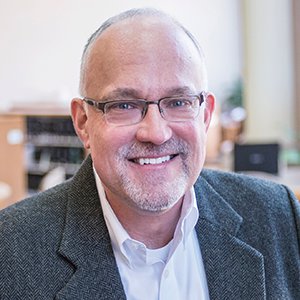This award was created in 2010 to honor Professor Henry Remak who served the university with distinction for over sixty-five years as a scholar, teacher, and administrator. Professor Remak directed the Institute for Advanced Study from 1988 to 1994 and from 1997 to 1998. The award recognizes his enthusiasm for scholarship in all fields and for the Institute's mission to promote innovative ways of thinking. In 2012, John Kruschke and Fritz Breithaupt were named H.H.H. Remak Distinguished Scholars for their project, "Perspectives on Moral Judgment." In 2016, Steve Sanders was appointed as H.H.H. Remak Distinguished Scholar for his seminar, "Dignity, Equality and Social Justice."
Perspectives on Moral Judgment 2012-2013
John Kruschke & Fritz Breithaupt
Tuesday, March 4, 2014 at 4 PM
Superhero movies present struggles of good versus evil, typically between a moral paragon and an immoral or amoral psychopath. But in most real-world conflicts, neither side lacks morality. Instead, the sides have different moral perspectives. This talk explored recent research in how different moral judgments emerge. It began with an overview of some contemporary ideas in moral psychology, including theories of universal moral concerns, differences across individuals, evolved moral emotions, and cultural devices such as narrative that can act as a superstimulus for moral emotions. The speakers then presented aspects of the work of the Moral Perspectives Research Group, which was supported by the Institute's Remak Seminar Award in 2012-13. One of the projects studied the effects of first-person and third-person narrative voice on moral side-taking by readers. Another investigated how real-world moral norms are imported into behavior in video games. A third project studied the relationship between punishment and perceptions of a transgressor's intention. A fourth project explored individual moral tunings and perceptions of humor in moral transgressions. The speakers concluded with a vision for the future of interdisciplinary research in moral judgment.

John Kruschke
John Kruschke is Professor of Psychological and Brain Sciences, Adjunct Professor of Statistics, and Core Faculty in Cognitive Science. He received his Ph.D. from the University of California at Berkeley in 1990. His primary areas of research are Bayesian statistics and the science of morality. He has won eight Teaching Excellence Recognition Awards at IU and has also received a Troland Research Award from the National Academy of Sciences.
Fritz Breithaupt
Fritz Breithaupt is Professor and Chair of the Department of Germanic Studies at Indiana University and is Adjunct Professor in Comparative Literature and Affiliate Professor in Cognitive Science. He studied in Hamburg, Berlin, and Baltimore and received his PhD in 1997 at Johns Hopkins University. He has published four books--on Goethe, the history of money, empathy, and the narrative mind--edited multiple volumes, and penned more than forty scholarly articles. He writes frequently for the press in Germany, especially Die Zeit and Zeit Campus.Dignity, Equality, and Social Justice 2016-2017
Steve Sanders
Links to Recordings associated with this seminar:

Other participants in the seminar were:
- Cara Caddoo, assistant professor, Department of History and The Media School
- Judith Failer, associate professor, Department of Political Science
- Luis Fuentes-Rohwer, professor and Harry T. Ice Faculty Fellow, Maurer School of Law; adjunct professor, Department of Latino Studies and Department of Political Science
- Colin Johnson, associate professor, Department of Gender Studies; adjunct associate professor, Department of American Studies, Department of History and Department of Human Biology
- Sheila Kennedy, professor, School of Public and Environmental Affairs; faculty fellow, Center for Religion and American Culture; adjunct professor, Department of Political Science, all at IUPUI
- Sean Nicholson-Crotty, professor, School of Public and Environmental Affairs
- Brian Powell, Rudy Professor and Chair, Department of Sociology; affiliated faculty, Department of Gender Studies and The Kinsey Institute

